

Cardiology at People Tree Hospitals is a state-of-the-art, world class service providing all non-invasive and invasive treatments including Minimally Invasive Cardiac Surgery (MICS). We proudly stand as one of the five hospitals in the city capable of performing MICS, showcasing our commitment to delivering top-notch cardiac care.
Known to be one of the Best Cardiology Hospital in Bangalore, the department is enabled with latest diagnostic imaging technologies like three dimensional mapping, 128 slice Multi-detector CT, Cardiac MRI, 3D echocardiography and contrast echocardiography. Our electrophysiology team have immense experience in radio frequency ablations, pacemaker and device implantations and resynchronization therapy.

The Cardiology Department at People Tree Hospitals in Bangalore is renowned for its excellence in managing entire spectrum heart disorders, ailments, and various heart conditions such as Congenital heart disease, Pediatric Cardiac Intervention like ASD, VSD and PDA device closure, Adult structural heart disease That includes balloon mitral valvotomy, TAVI, Percutaneous valve replacements and many more. Our team of highly qualified and experienced cardiologists are skilled in treating the most challenging of heart conditions in both Adults and Children and even in newborn babies. Consult today with the Top Cardiologists in Bangalore.

An ECG or Electrocardiogram is a simple and non-invasive procedure ... that records heart rate and its rhythms.ECG is done to look or check for known heart conditions or how healthy the heart is before or after surgery.
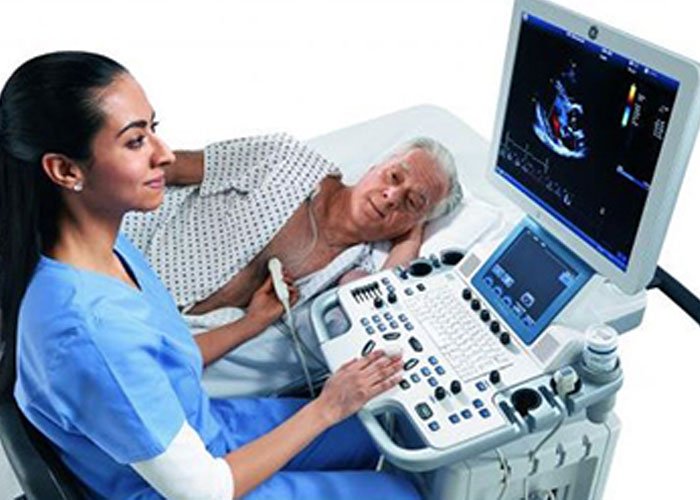
An echocardiogram is an ultrasound of the heart. It uses ... standard 2D, 3D and Doppler ultrasound to create images of the heart. The test does not involve any radiation. The purpose of this study is to determine the size of your heart, to evaluate how well your heart is functioning or pumping, and to assess the structure and function of the valves within the heart.

Heart failure is a chronic medical condition where the heart ... cannot effectively pump blood, leading to symptoms like fatigue, shortness of breath, and fluid retention. It often results from underlying issues such as coronary artery disease, hypertension, or previous heart damage. There are two main types: systolic, where the heart's pumping function is impaired, and diastolic, where the heart becomes stiff and cannot fill properly. Treatment involves lifestyle changes, medication, and, in some cases, surgical interventions. Regular monitoring and adherence to medical advice are crucial for managing heart failure, enhancing patients' quality of life, and preventing complications.
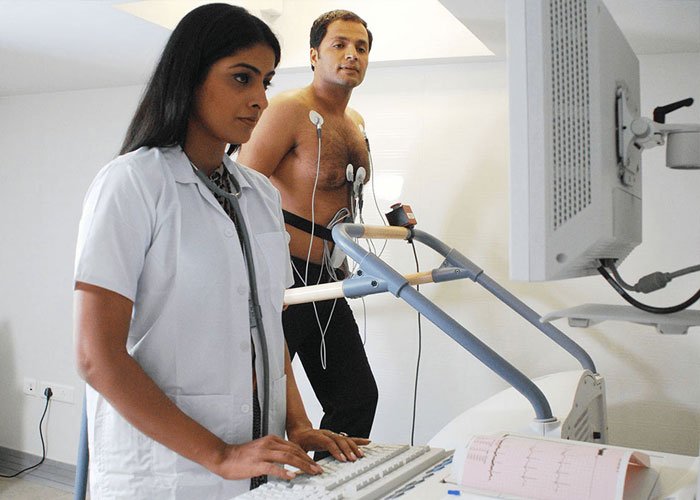
TMT or Tread Mill Test or Stress Test or Exercise Test measures ... how better the heart works when it is beating faster and working hard. The stress test helps doctors see whether the heart is getting enough blood during these times.
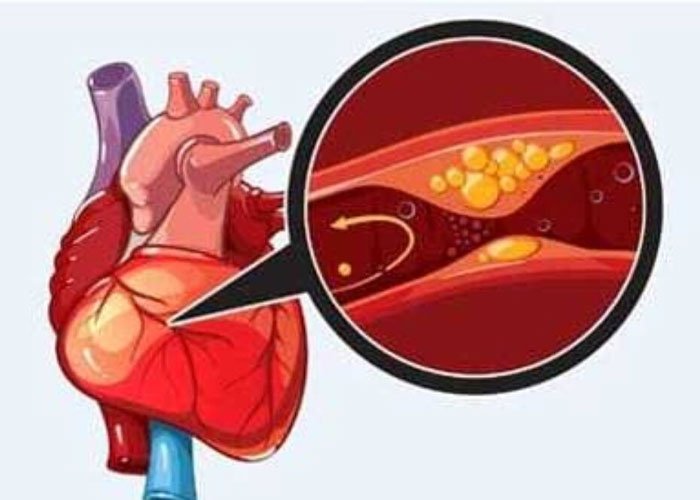
A coronary angiogram (CAG) is the most common invasive
...
procedure done by any interventional cardiologist. This procedure uses X-ray imaging to see your heart’s blood vessels. The test is generally done to see if there’s a narrowing or blockage in the artery that supplies blood to your heart.
During a coronary angiogram, a type of dye that’s visible by an X-ray machine is injected into the blood vessels of your heart. The X-ray machine rapidly takes a series of cine loop x-ray images (angiograms), offering a look at your blood vessels. This is purely a diagnostic test to identify narrowings or blockages.
Once identified, you may be recommended any of the 3 options
• A further procedure to unblock the arteries called coronary angioplasty with stent placement.
• Alternatively you may be advised a coronary bypass surgery (CABG).
• Not infrequently, the blockages may not be severe and you may be advised to take simple medications to address your symptoms and prevent the blockage from progressing.

Chest pain or heart pain appears in many forms, varying ... from a sharp stab to a dull ache. Sometimes chest pain feels crushing or burning. In certain cases, the pain travels up the neck, into the jaw, and then radiates to the back or down one or both arms. Many different problems can cause chest pain. The most life-threatening causes involve the heart or lungs. Because chest pain / heart pain can indicate a serious problem, it's important to seek immediate medical help.
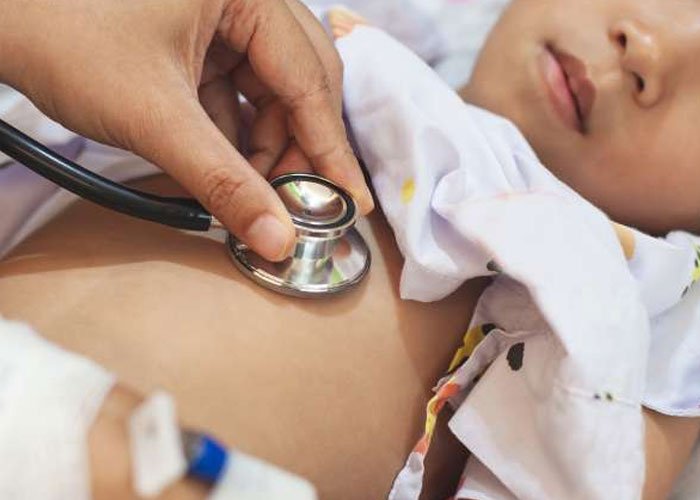
Pediatric cardiology is a medical specialty that focuses
...
on the diagnosis and treatment of heart problems in infants, children, and adolescents. Pediatric cardiologists treat conditions such as Congenital heart disease, perform Pediatric Cardiac Interventions like ASD, VSD and PDA device closure, acquired heart diseases, and other cardiovascular conditions.
Congenital Heart Defects: Many children are born with structural abnormalities in their hearts, known as congenital heart defects. These defects can range from mild to severe and may involve issues with the heart's walls, valves, or blood vessels. Pediatric cardiologists diagnose these conditions and develop treatment plans, which may involve medication, minimally invasive procedures, or surgery.
Septal Defect: Some children are born with a heart condition called a septal defect. This means there’s a hole in the wall that separates the heart’s four chambers.
An atrial septal defect (ASD) is a hole in the wall between the heart’s two upper chambers. ASD is a congenital condition, which means it is present at birth.
A ventricular septal defect (VSD) is a hole in the wall between the two lower chambers. In children, a VSD is usually congenital.
A septal defect doesn’t always need treatment. Septal defects can also close on their own as a child grows. If a hole hasn’t closed on its own within a child’s first two years, or if the hole is larger than 8-10mm, surgery may be necessary.
Acquired Heart Diseases: In addition to congenital heart defects, children can also develop acquired heart diseases, such as myocarditis, Kawasaki disease, or rheumatic heart disease. Pediatric cardiologists play a crucial role in diagnosing and managing these conditions.
Our experienced surgeons is dedicated to providing top-notch care. We employ cutting-edge equipment and innovative techniques to consistently enhance the success rates of cardiological procedures. Book Your Appointments with the Best Heart Hospital in Bangalore today.
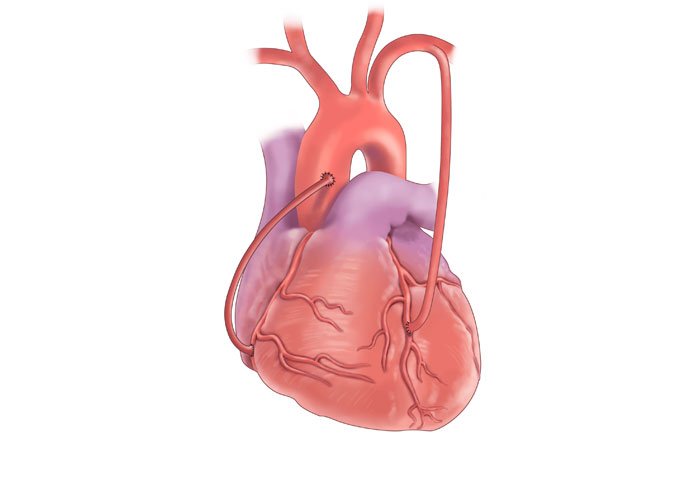
Coronary Artery Bypass Graft Surgery (CABG) is a procedure
...
used to treat coronary artery disease. Coronary artery disease (CAD) is the narrowing of the coronary arteries – the blood vessels that supply oxygen and nutrients to the heart muscle. CAD is caused by a build-up of fatty material within the walls of the arteries.
One way to treat the blocked or narrowed arteries is to bypass the blocked portion of the coronary artery with a piece of a healthy blood vessel from elsewhere in your body. Blood vessels, or grafts, used for the bypass procedure may be pieces of a vein from your leg or an artery in your chest. An artery from your wrist may also be used. Your doctor attaches one end of the graft above the blockage and the other end below the blockage. Blood bypasses the blockage by going through the new graft to reach the heart muscle. This is called coronary artery bypass surgery.
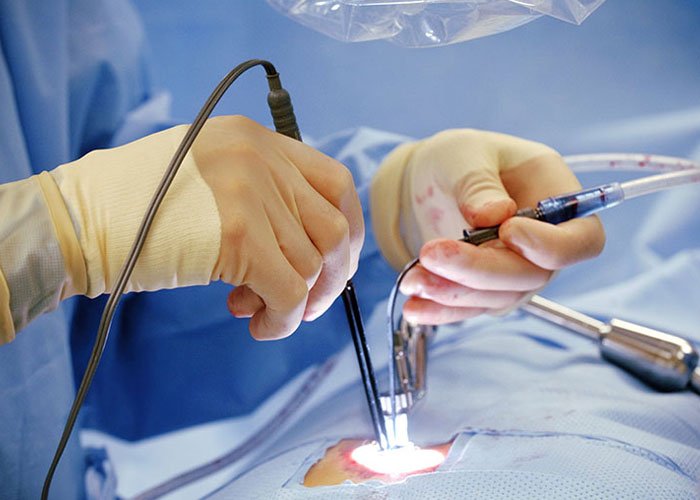
Minimally Invasive Cardiac Surgery (MICS) is an advanced ... surgical approach used to treat heart conditions with smaller incisions compared to traditional open-heart surgery. During MICS, a specialized surgical team utilizes advanced instruments and techniques to access the heart through small keyhole incisions. This approach reduces trauma to the chest, lowers the risk of infection, and promotes quicker recovery times for patients. MICS is commonly employed for procedures such as coronary artery bypass grafting, valve repair or replacement, and atrial septal defect closure. It offers the advantage of shorter hospital stays, less pain, and a faster return to normal activities while achieving effective cardiac treatment.
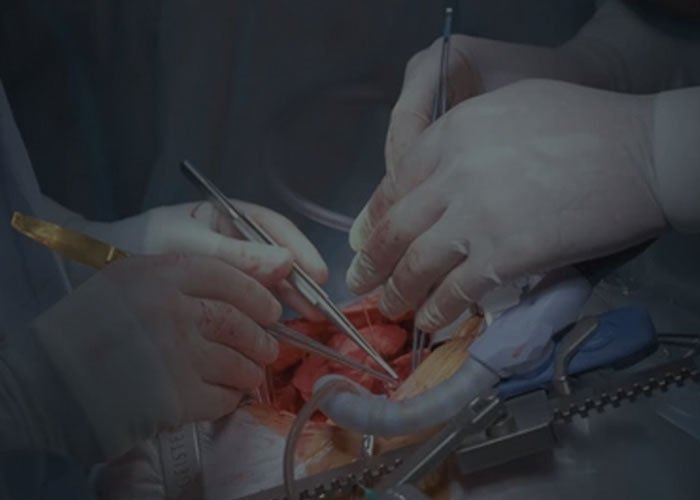
Open heart surgery, also known as cardiac surgery, is a surgical ... procedure that involves accessing and operating on the heart and its surrounding blood vessels. Unlike minimally invasive techniques, open heart surgery typically requires a large incision in the chest, which allows the surgeon direct access to the heart. This procedure is performed for various reasons, including coronary artery bypass grafting (to improve blood flow to the heart muscle), heart valve repair or replacement, repairing congenital heart defects, and treating aneurysms or other heart conditions. During open heart surgery, a heart-lung machine may be used to temporarily take over the heart's pumping function while the surgeon works on the heart. Despite its invasiveness, open heart surgery remains a critical and effective method for treating complex cardiac issues.

Coronary Angioplasty, also called percutaneous coronary
...
intervention, is a procedure used to open clogged heart arteries. Angioplasty uses a tiny balloon catheter that is inserted in a blocked blood vessel to help widen it and improve blood flow to the heart.
Angioplasty is often combined with the placement of a small wire mesh tube called a stent. The stent helps prop the artery open, decreasing its chance of narrowing again. Most stents are coated with medication to help keep the artery open (drug-eluting stents). Rarely, bare-metal stents are used.
Angioplasty can improve symptoms of blocked arteries, such as chest pain and shortness of breath. Angioplasty is also often used during a heart attack to quickly open a blocked artery and reduce the amount of damage to the heart.
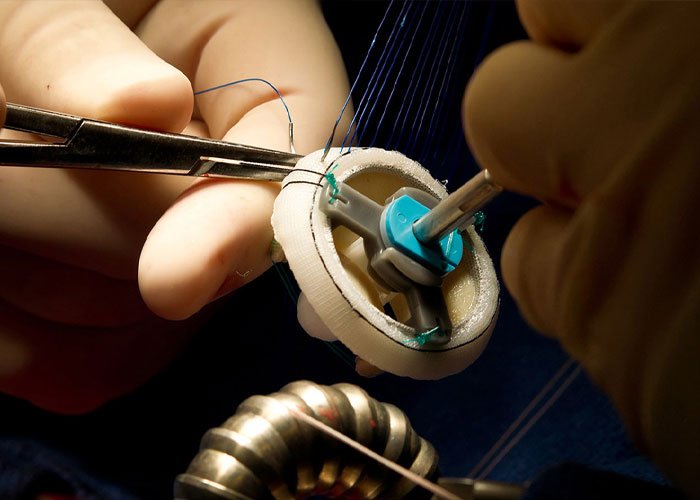
Heart valve surgery is a procedure to treat heart valve
...
disease. Heart valve disease involves at least one of the four heart valves not working properly. Heart valves keep blood flowing in the correct direction through the heart.
The four heart valves are the mitral valve, tricuspid valve, pulmonary valve and aortic valve. Each valve has flaps - called leaflets for the mitral and tricuspid valves and cusps for the aortic and pulmonary valves. These flaps should open and close once during each heartbeat. Valves that don’t open or close properly disrupt blood flow through the heart to the body.
In heart valve surgery, a surgeon repairs or replaces the damaged or diseased heart valve or valves. Many surgical approaches can be used to repair or replace heart valves, including open-heart surgery or minimally invasive heart surgery.
The type of heart valve surgery needed depends on various factors, including your age, your health, and the type and severity of heart valve disease.
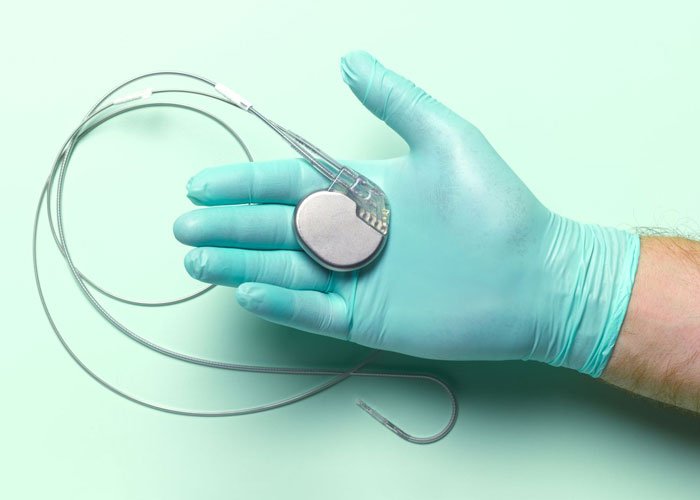
A pacemaker is a small device that’s placed in the chest
...
(or abdomen for infants and children) to treat abnormally slow heart rhythms called bradycardia. This device uses electrical pulses to prompt the heart to beat at a normal rate.
During an episode of bradycardia, the heart may not be able to pump enough blood to the body. This can cause symptoms such as fatigue (tiredness), shortness of breath, or fainting (collapse episodes). Severe and prolonged bradycardia arrhythmias can damage the body’s vital organs and may even cause loss of consciousness or death.
A pacemaker can relieve symptoms of bradycardia such as fatigue and fainting. It will prevent loss of consciousness and fatality due to slow heartbeats and enable the affected person to resume a more active lifestyle.

An automated implantable cardioverter-defibrillator (ICD) ... is a device that detects any life-threatening, rapid heartbeat termed Ventricular Tachycardia (VT) or Ventricular Fibrillation (VF) and quickly tied to convert it to a normal rhythm by sending some electrical impulses faster that the abnormal heart beat termed Anti-Tachycardia Pacing (ATP) or if that fails, will deliver an electric shock to reset your heart to normal rhythm; A process that is termed DC Cardioversion or defibrillation.
.jpg)
If you are diagnosed with heart failure with reduced ejection
...
fraction (a weak heart) it would help to have a careful look at your ECG to see if you have a condition called Left Bundle Brach Block (LBBB). If you had both, you will benefit from cardiac resynchronization therapy (CRT).
LBBB and heart failure are a common combination. When LBBB co-exists with HF, it makes the weak heart beat in an asynchronous fashion thus making it even more in-efficient. By reversing the electrical phenomenon of LBBB by means of implanting a special pacemaker device with 3 wires (A Bi-Ventricular Pacemaker) the electrical activation of the heart can be made more synchronous (re-synchronisation) which then will make the mechanical function of the heart improve over a period of time.
The procedure involves implanting a pacemaker (the size of 3 ten-rupee coins) just below the collarbone. Three wires (leads) connected to the device monitor the heart rate to detect the heart’s own rhythm and deliver carefully timed electrical impulses to make the heart rhythm more organized.

State-of-art
Facilities

Experienced
Team

No Hidden
Treatment Cost

Insurance
Assistance
We have the Best Cardiologists and Best Cardiac Surgeons in Bangalore with over two decades of experience, specialized in Coronary Artery Bypass Surgery, Single or Double Valve Replacement, Minimal Invasive Valve Surgery, Aortic Root Replacement, Valve Repair, Cardiac Tumors, Heart Failure Surgery, Lobectomy/ Pneumonectomy, Decortication & Pleurodesis, VATS Lung Procedures, ASD Closure, VSD Closure, PDA Ligation; TOF Repair, Congenital Heart Disease Repairs; Aortic Aneurysm Surgery, Carotid Endarterectomy, Peripheral Vascular Bypass Surgeries, ECG, ECHO, TMT, Holter Monitoring; Interventional Cardiology.
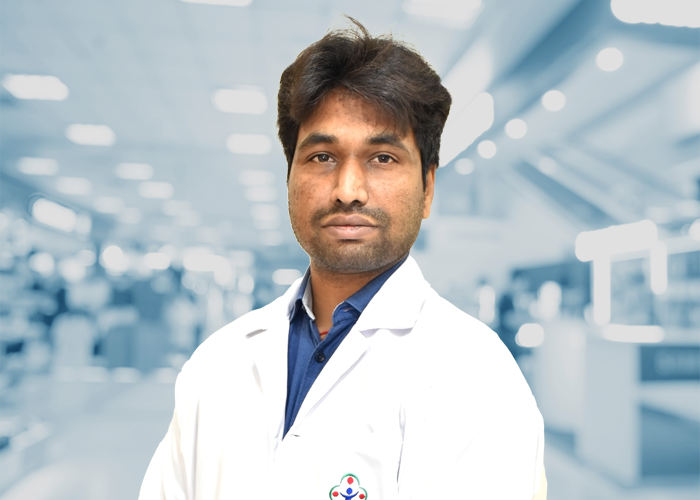
The Department of Cardiology is well-known for its facilities to diagnose and treat different types of Heart Diseases. Key Facilities at the hospital include:
I have visited hospital and met Dr.Karthick Naidu as he is specialist in cardiology. He is such a good person , down to earth and explained me everything before my treatment starts and afterwards everything went well. Even the staff members are very supportive especially shakuntala,Usha mam. In perspective of hygiene, cleanliness and you will get all tests done in this hospital. Thank you everyone for taking care of me.
Dr.diwakar cardiologist has given a best treatment and good suggestions for health issues.
Staff and management also helps us in Treatment with good helping nature. Thanks to people's Tree hospital Team
One of the best cardiac hospital...in Bangalore. I visiting for so many times all staffs are very helpful and I specially appreciate Dr. Akshay kumar sir and ms shakuntala mam because both are very kind and need full persons very helpful my uncle. really big thanks.. Special thanks for shakuntala mam..We will never forget your help....
One of the best hospital in bangalore.Good experience and good service. Dr akshay kumar singh is wonderful cardiac surgeon.nursing care is also good. staff response ultimate.especially shakuntala madam response wonderful.special thanks for akshay kumar sir and shakuntala madam. Thank you so much every one
Very much satisfied with Dr Diwakar (Cardiologist) the way he speaks and explains the patient is very much professional and caring.
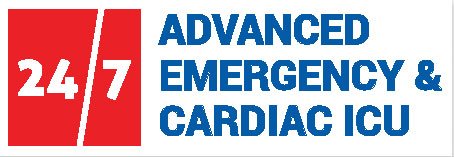
© Copyright Peopletree Hospitals.. All Rights Reserved.